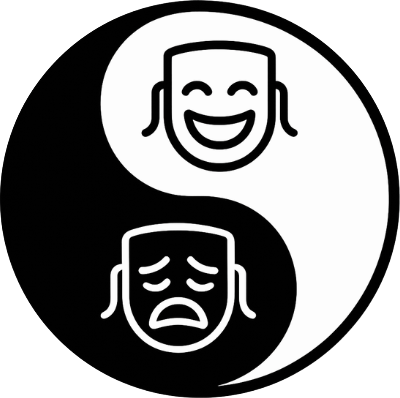#Verified: Dr Jonah Oliver
Armed with his unique blend of psychology and neuroscience, Jonah Oliver has been the driving force behind several sporting institutions, including Golf Australia, Tennis Australia, and the AFL (Essendon Football Club, Gold Coast Suns Football Club).
Jonah describes his job as "helping people focus on the right thing at the right time", and the results of his approach speak for themselves.
Here, Jonah talks to us about how actors can employ these same mindsets and strategies to facilitate peak performance.

You’ve worked with some of sports' best of the best. What have you found separates the individuals in the top 1% from the rest?
Jonah Oliver: There seems to be a draw to the pursuit of improvement and high standards. Those that do it well – not just achieve (a lot of people can achieve things), but really thrive and not have it cost their personal well-being – keep perspective. They have the self-awareness that this is just a piece of the puzzle. This is not who they are, this is just what they're doing right now.
In your experience, what role does goal setting play for these individuals?
JO: Funnily enough, far less than people think.
Typically, the people I work with, they'll own their goal. They'll say, "I want to climb Mount Everest". But very quickly, it steps into the performance goal and the process goal.
An outcome, a performance, and a process: these are the three titles I put around goal setting. The outcome [goal] is the quick one – I want to win an Olympic medal. The performance [goal] is, what do I want to bring to that? And that will come back to a process [goal] of what I connect to in that moment.
This also helps us connect to the enjoyment of the journey. I might set the goal to climb Mount Everest, but I'm doing it because I love mountain climbing and I want to do something that really challenges me. And so now, whilst I desperately want to achieve the outcome and say I climbed Everest, it's also about the fact that if I don't, I still had this amazing dance with the mountain.
On this, setbacks are a given on the actor’s path, but they can still be challenging to face. How do you help athletes navigate their obstacles?
JO: I talk a lot about differentiating disappointment from regret. Disappointment comes from pursuing something we want and not getting it. Regret is sitting in the bedroom going, "I didn't bring the best version of myself".
Make room for disappointment. You don't need to minimise it. You don't need to lie to yourself. No, it sucks. It hurts. I'm disappointed. Take a moment to go, "Could I have done more?", [but] if the answer is no, just make room for the disappointment.
One of your personal values is “playfulness”. Where does this sit in relation to peak performance?
JO: It's not about playfulness, it's about values congruence. Every single human has values. Some of us have taken time to explore what they are and wrap some words or sentences around them – and I really encourage people do that – but it's not so much about what the value is. It's about being connected to the behavioural expression.
If I truly have a value of playfulness, then when I'm working with a really serious client who's got a really serious problem to solve, I'll still bring playfulness to it. That makes me a better psychologist. My analogies, my metaphors, my way of teaching [will] come through as more authentic. So, it's not so much about the playfulness value per se – that's just when I'm being the best version of myself.
Can you talk to us about effective pre-game routines and the line between them and superstitions?
JO: It's a really important topic. The human brain is exceptionally superstitious. Know that. There's nothing wrong with you if you have the tendency to want to wear your lucky jocks or your lucky earrings. We've got this correlation association and it's evolved to keep us alive over hundreds of thousands of years.
But here's the kicker: what you're doing is trying to bring control and reduce anxiety. The fundamental thing that's actually occurring is you are saying, "My anxiety is bad", "My uncertainty is bad".
You'll feel better putting on the lucky underpants in the short-term, but what you don't realise is you're feeding a longer-term relationship to fear – that it's a bad thing and you need to control or reduce it. Understand it's more about changing your relationship. Nerves are the price of entry. Nerves go up when doing things you care about. Having nerves doesn't mean you underperform.
That's such a game-changing reframe... You also have a fantastic formula: “Competition = ordinary performance on a special day”. What does this mean in practice?
JO: Let's start with "a special day". A special day means there's consequence. The Olympics is a once-in-a-lifetime. That's a special day. You can't pretend it's training. It's the Olympics. Which means I'll have a bunch of emotions and stories in my brain around it. The "ordinary day" is being courageous enough to sit and face that and say, "I don't need to change who I am or what I do. I simply need to replicate my normal high-quality performance".
Otherwise, we try to match performance with emotion – "This is a really high pressured environment, I need to perform at a really high level". But what we're doing there is asking ourselves to do something we've not done before. Just think about that for a moment: in the most important moment of our professional life, we're going to walk in there and do something we've never done before? It's absurd.
That's why I created that formula: to help my clients realise that in those big moments, we actually go out with quite a boring mindset. It's not putting on a cape and flying, it's grounding yourself with the earth and just being you.
In a similar vein, you’ve said, “We only worry about the things we care about”. How does this understanding help your athletes?
JO: I always say it's not how hard something is, it's how important something is. The analogy is that if I'm playing in the street with my kids, and a ball rolls onto the road and a car comes, I'll let the car hit the ball. If my son runs out, I will [run in front of the car]. I don't care how painful that car is on my body, I don't care how hard it hits me, I don't care if I die. I just don't, because I care how much my son means to me. So, when I help people break world records, climb mountains, do really cool, hard things that are scary, painful, effortful, my job is to help them connect to what's at stake. Then, let's focus on going out there and being the best version of ourselves in the pursuit of this thing that really matters.
I don't need to feel motivated to run onto the road to save my son. I just connect to how important he is and I'm motivated to move.
On the topic of movement, can you talk to us about positive action vs. positive thought?
JO: It's not about positive thinking. It's about taking positive action no matter what you're thinking or feeling.
The human brain is a rich tapestry – actors would know that better than anybody. So, don't try to restrict your range of emotions to only the positive domain. What do you do when you do have a bit of tough stuff? Negativity, criticalness, fear, doubt? Get out of bed and take positive action towards what matters. Let go of your attachment to trying to make yourself feel good and focus on what you need to do. Then let's catch up at the end about how you're feeling.
Jonah's qualifications: BA (Hons) Psychology, Master of Psychology (Sport & Exercise), Doctor of Psychology (Neuroscience).
Massive props to Jonah for his time. If you dive into more about Jonah's work or say hello, let him know you’re from the Dojo 👊
